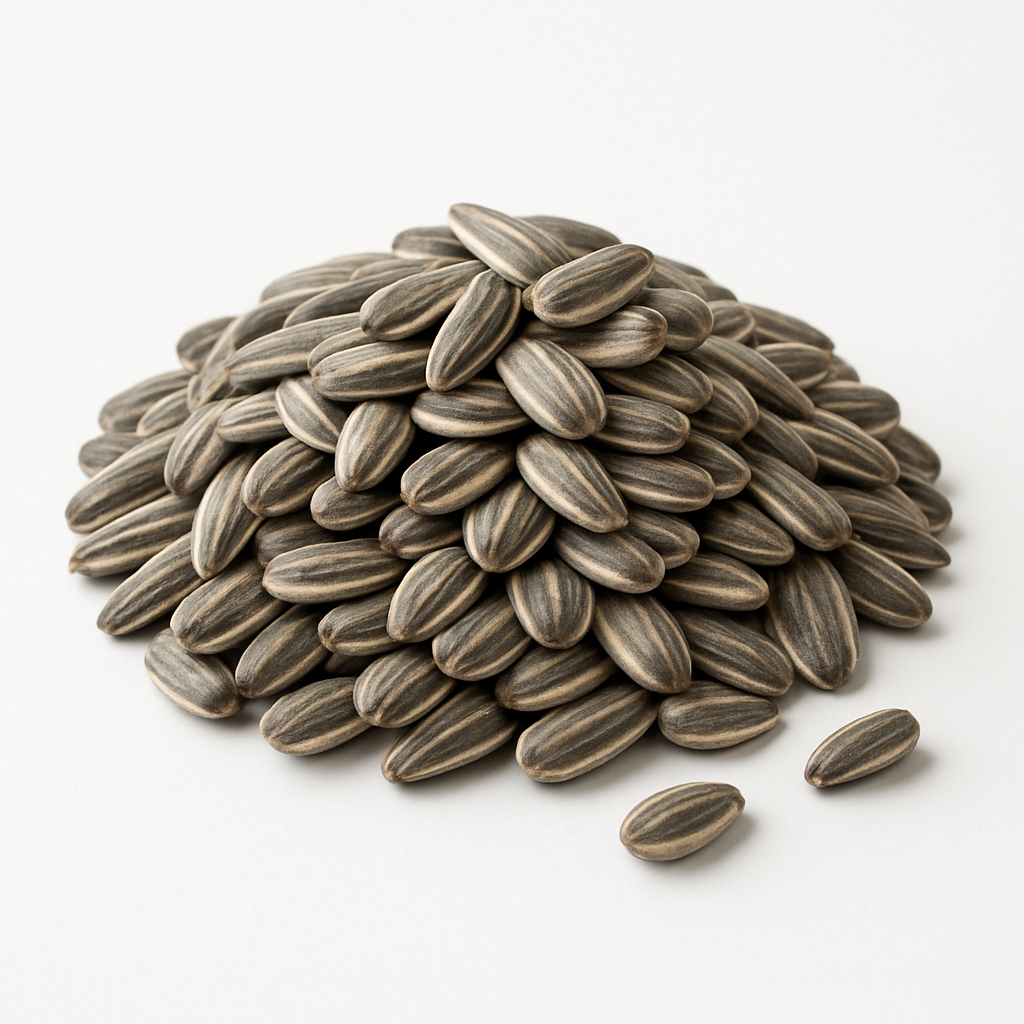Wadi
Sunflower seeds
Sunflower seeds
Couldn't load pickup availability
not technically a nut, but often considered one due to their nutritional profile.
Primary Uses:
1. Culinary uses:
- Snacking: Sunflower seeds can be eaten as a snack, either roasted or raw.
- Baking: Sunflower seeds can be used in baking, such as in breads, muffins, and cookies.
- Salad topping: Sunflower seeds can be sprinkled on top of salads for added crunch and flavor.
- Garnish: Sunflower seeds can be used as a garnish for soups and stews.
2. Flavoring uses:
- Sunflower seed butter: Sunflower seeds can be ground into a butter-like consistency and used as a spread or ingredient in recipes.
- Seasoning: Sunflower seeds can be ground and used as a seasoning for dishes such as roasted vegetables or meat.
3. Aroma uses:
- Sunflower oil: Sunflower seeds can be pressed to extract oil, which can be used in cooking or as a carrier oil for aromatherapy.
- Candle making: Sunflower oil can be used as a base for making candles, providing a subtle nutty aroma.
Other Uses:
1. Medicinal uses: Sunflower seeds are rich in nutrients such as vitamin E, magnesium, and selenium, which have been linked to various health benefits. They may help reduce inflammation, lower cholesterol levels, and improve heart health.
2. Religious uses: Sunflowers have been used in various religious ceremonies and rituals. In some cultures, they are considered a symbol of the sun and are used in sun worship.
3. Ornamental uses: Sunflowers are popular ornamental plants and are often grown for their large, bright yellow flowers. They are commonly used in gardens, as cut flowers, and in floral arrangements.
4. Insect repellent: Sunflower seeds contain a natural insect repellent called pyrethrum, which can be used to repel insects and pests.
5. Dyeing agent: Sunflower seeds can be used to create natural dyes for fabrics and other materials. The seeds contain a yellow pigment that can be extracted and used as a dye.
6. Folklore uses: Sunflowers have been used in various folklore traditions and beliefs. In some cultures, they are believed to bring good luck and prosperity, while in others they are associated with death and mourning.
7. Culinary garnish: Sunflower seeds are a popular ingredient in many cuisines around the world. They can be roasted and salted for a tasty snack, or used as a garnish for salads, soups, and other dishes.
Caution:
1. High in calories: Sunflower seeds are high in calories, which can be a disadvantage for those trying to maintain a healthy weight.
2. High in fat: Sunflower seeds are also high in fat, particularly in the form of unsaturated fats. While these fats are healthy in moderation, excessive consumption can lead to weight gain and other health problems.
3. Potential allergen: Sunflower seeds are a common allergen, and those with allergies to nuts or seeds should avoid them.
4. Phytic acid content: Sunflower seeds contain phytic acid, which can interfere with the absorption of certain minerals in the body, such as iron and zinc.
5. Risk of contamination: Sunflower seeds can be contaminated with bacteria, such as Salmonella, which can cause foodborne illness.
6. Oxidation: Sunflower seeds contain polyunsaturated fats, which are prone to oxidation and can become rancid over time. This can lead to a bitter taste and potential health risks.
Share


